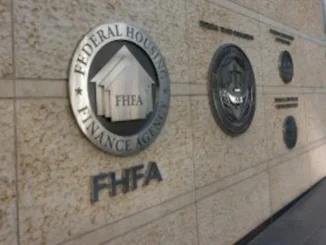
The Federal Housing Finance Agency (FHFA) Office of the Inspector General (OIG) released on Thursday its 25th semi-annual report to Congress, which compiles information about the work the office has done to ensure the agency’s actions align with its mandated mission and highlights results in its investigative reports, including indictments, arrests and criminal fines including restitution and civil forfeiture.
The report also includes assessments of management and performance challenges for the agency and any recommendations the OIG has made to resolve the potential deficiencies.
“At the beginning of the semiannual reporting period, we communicated to the FHFA Director our assessment of the most serious management and performance challenges that could hinder FHFA’s ability to accomplish its mission,” said Brian M. Tomney, the FHFA inspector general. “We also released a new workplan focused on those areas, detailing projects and initiatives intended to leverage our resources and provide effective, risk-based oversight of FHFA.”
In total, 11 reports, including audits, evaluations, compliance reviews, and white papers, were produced over the reporting period, with the most recent a review of the agency’s record-keeping practices, which were determined to need improvement.
Another report found that the FHFA has the capacity to do more in its efforts to combat appraisal bias, including proactively notifying state regulators and licensing authorities when it identifies cases of appraisal bias.
The report also offers an overview of the results of the office’s investigative actions, which include 40 indictments or charges; 14 arrests; 43 convictions or pleas and 27 sentencings. During the reporting period, the office reported $26,727,920 in criminal restitution and $5,481,188 in criminal fines or forfeitures.
In addition, it reported $495 million in civil forfeitures, all attributable to a single settlement with Credit Suisse in October 2022 over a dispute tied to mortgage-backed securities.
Tomney also noted the office’s fraud investigations related to pandemic-relief funding.
“In California, for example, three family members were sentenced to prison for the fraudulent receipt of over $2.5 million in these funds, and in Florida, a $4.8 million pandemic loan scheme resulted in the defendant pleading guilty to wire fraud,” Tomney said in the report.
Overall, Tomney characterized the events, reports and investigative actions of the watchdog as indicative of the office’s dedication.
“OIG includes an array of professionals with diverse skills and expertise, united in our commitment to public service and to strong, independent, objective oversight of FHFA and the entities it oversees,” Tomney said. “The accomplishments in this semiannual report are a credit to the OIG staff’s dedication to that mission.”



